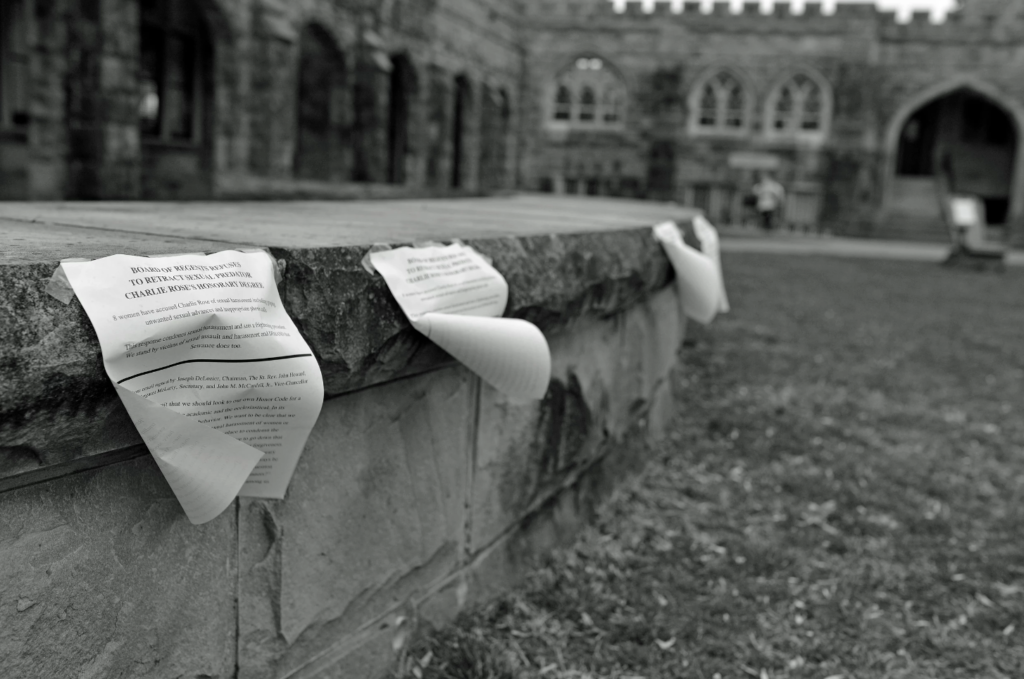
Sewanee has decided to revoke one of its honorary degrees — a first for the Episcopal school.
In a hotly debated decision, which inspired a rare student protest and pointed letters from theologians, the University of the South’s governing board acted this week to rescind the honor given to former CBS host Charlie Rose in 2016. Rose was accused of sexual misconduct by several women late last year.
This is a reversal on the board’s part. Last month, it issued a statement saying it would not be appropriate to punish Rose, despite some students’ calls to revoke his honorary degree. The board members argued Rose should be forgiven rather than condemned.
More:
Sewanee Declines To Rescind Honorary Degree For Charlie Rose
That statement drew outrage from students and professors, including those in the divinity school who took issue with the board’s theological arguments. A few weeks later, two dozen Episcopal bishops, who are trustees of the university, agreed.
“This would not represent a departure from the Christian practice of forgiveness. Instead, it is a refusal to live in denial,” they wrote. “By failing to act in this case, the university remains silent in the face of broader injustice.”
In recent weeks, the faculty Senate created a protocol for revoking honorary degrees, which the board of trustees decided to do this week.
Claire Brickson, a Sewanee senior who helped organize the protests, says she’s pleased to see this outcome, but it’s just a start.
“We don’t want to lose the momentum we have around the real issue, which is sexual assault and harassment,” she says.
She says students are writing up a list of demands for administrators, like changing the protocol for handling misconduct complaints and releasing data on the outcomes of sexual assault cases.
In a statement, Sewanee’s president says the university will work actively to combat sexual misconduct — and that it already does.
“The University has steadfastly stood and continues to stand against sexual misconduct of any sort on the campus and in the workplace,” he wrote.


